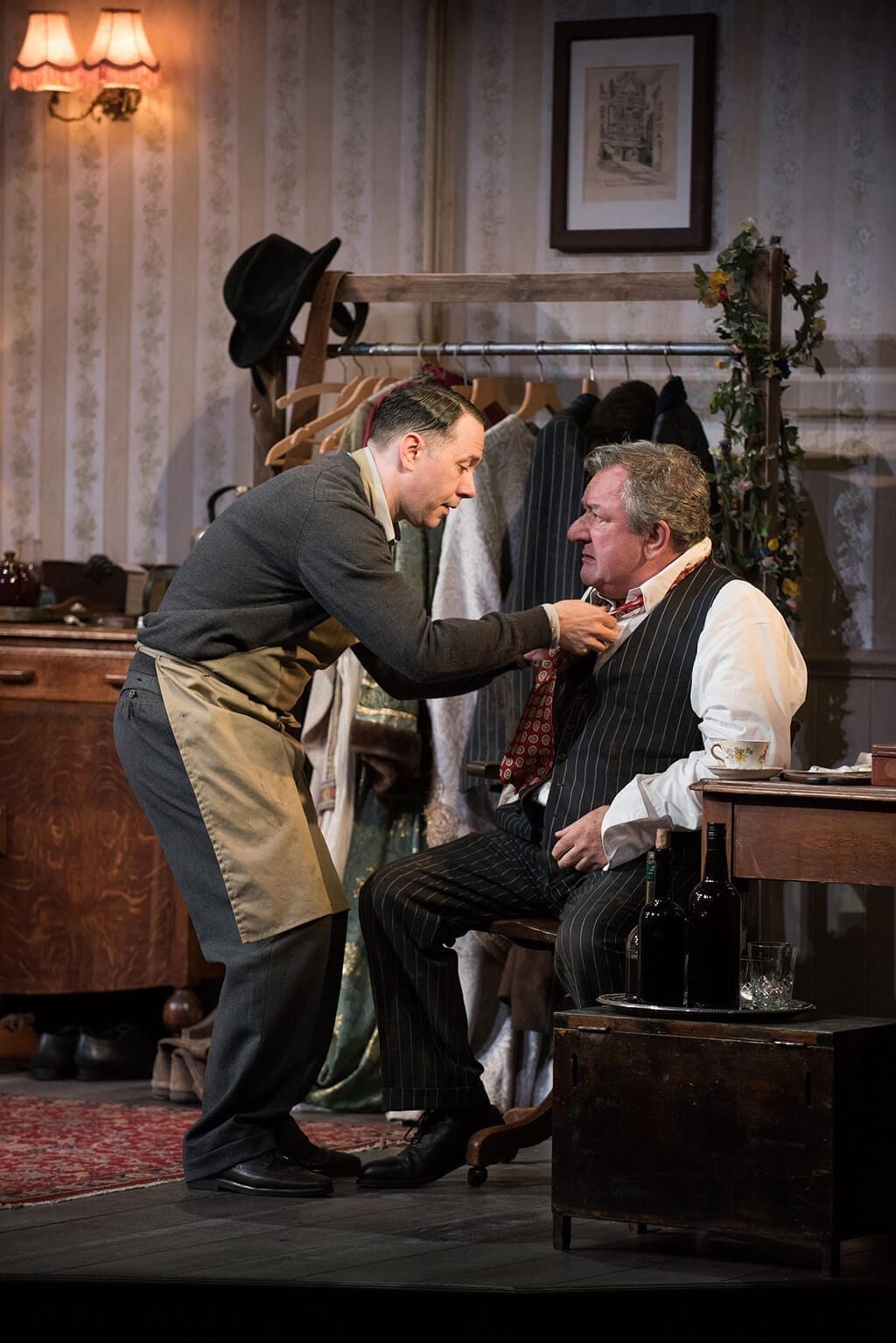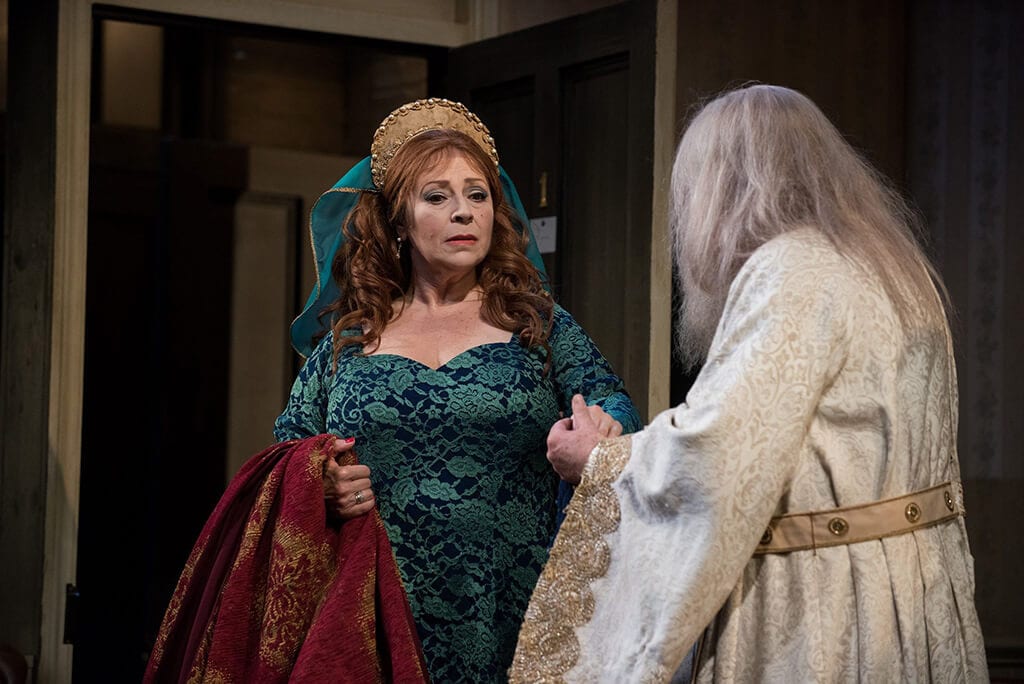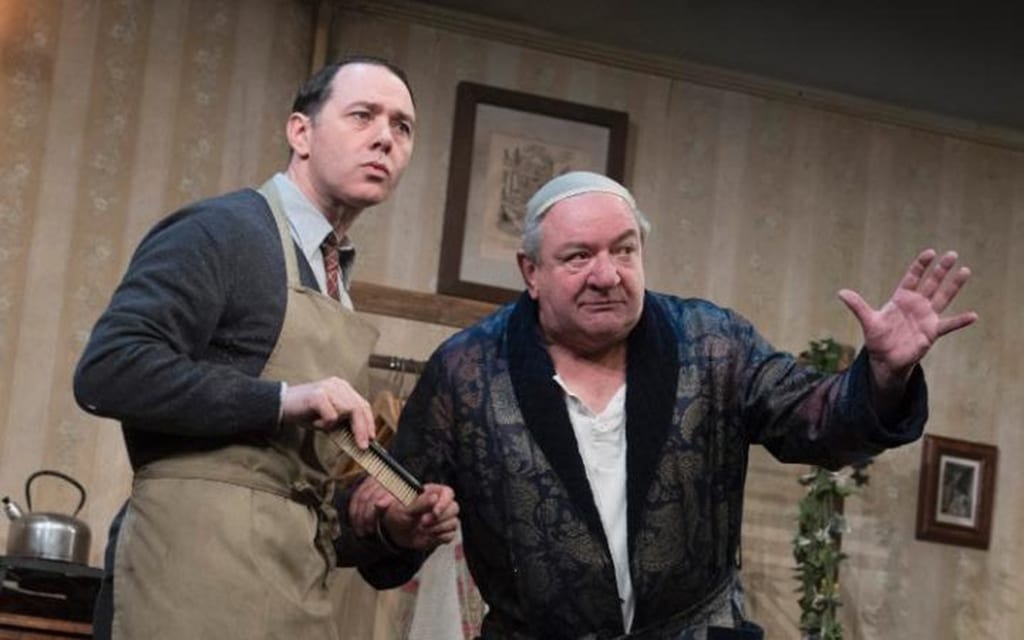The Dresser is a play about theatre and theatricality. It focuses on the relationships between the members of a touring repertory company bringing Shakespeare to the masses during the Second World War. And – given the fact that the writer, Ronald Harwood, was Sir Donald Wolfit’s dresser – it surprises the audience with its bleak and unflattering portrait of all the protagonists, driven as they are by ego, ambition, resentment, and lack of talent. It is a very entertaining evening in the theatre – illuminated by two towering performances – but one leaves the play with a bitter taste in the mouth.
The superb Ken Stott is ‘Sir’, an actor manager of the old school but the old school shows every sign of collapsing around him, and it’s not just the air raid going on above the provincial theatre that is to blame. Wartime privations, a lack of talent among his company which is made up largely of men too old or infirm to be in the armed services, and his own fading self-confidence, have left him in the depths of clinical depression. For the first ten minutes of the play he weeps, only perking up momentarily when told that there is a full house. His dresser Norman, given a camp and quietly vicious persona by the excellent Reece Shearsmith, is convinced he can drag Sir back from the depths in time for the curtain to go up. He is aided and obstructed by Sir’s wife, by his devoted stage manager Madge, by a flirty and ambitious young actress, and sundry other theatrical no-hopers.
The Duke of York’s stage is superbly set – the revolve gives us the dressing room where the tragedy of Sir’s crisis is played out and the wings of the stage on which the comedy of King Lear is performed – it is a comedy in the hands of the inadequate company. The constant fear that the show will not go on – that ‘Sir’ will not regain the confidence to make his entrance – that he will not be able to remember his first lines – even that he will launch into Othello instead of Lear – is nicely emphasised by the fact we can sometimes see stage crew lurking in the shadows of the flies of the theatre on the other side of the revolve.
Despite this bleak context, the play is very funny – the razor sharp exchanges between Stott and Shearsmith are faultless. Selina Cadell is touching as a heart-weary Madge and Harriet Thorpe brings surprising pathos and dignity to the role of Her Ladyship, even if it is difficult to see her carrying off Cordelia. The production is every bit as polished and slick as we would expect from a director with the track record of Sean Foley. The air raid setting and the seedy dressing room are spot-on.
Harwood is at pains to tell us in the programme that he is not Norman and Wolfit is not Sir. But it is clearly a play based on deep wells of personal experience and real empathy with the characters and the world they inhabit. What makes it an ultimately unsatisfying evening is the fact that Harwood’s world – and the virtues that once made it so full of life – seems now so far away and at this distance less than admirable. The absurdity of the brave actor manager defying Hitler’s bombers is all too true.



